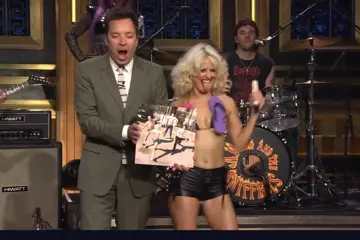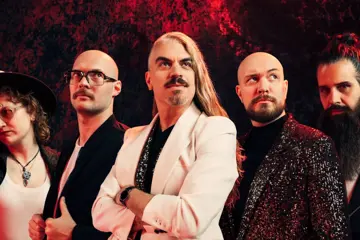Rich Hill, Missouri was where Tracy Droz Tragos spent her every summer and Christmas. It was the hometown of her father, who'd died in Vietnam when she was an infant (the father she'd never known eventually becoming the subject of her first documentary, 2004's Be Good, Smile Pretty) and where his parents still lived. So, come holidays, Tragos would go stay with her grandparents in something resembling mythical, small-town America. “It was this place that I loved,” Tragos admits.
Tragos grew up and moved away, her grandparents died, and she “lost [her] sense of connection” to this once-familiar place. The same sentiment held for her cousin, Andrew Droz Palermo, so the two set out to make a film about this place so entwined with their memories. “But when we got there it became clear there was no way you could film Rich Hill in a nostalgic way; there was something far more urgent begging.”
And so Rich Hill, their feature-length doco, is a portrait of another decaying small town in the American heartland, seen through the lives of three adolescent boys and their families as they struggle to survive. “We wanted to shed light on rural poverty, [but] we wanted to do it with a personal quality,” Tragos says.
The film introduces us to its three subjects – Andrew, Appachey and Harley, each aged between 13 and 15 – and their families, and slowly reveals the back-stories, be they tragic or banal, that led them to be born into a life of rural poverty. Tragos and Palermo spent 20 months shooting 450 hours of footage, which they would often roughly edit as they went, both to attract funding and to “get a sense of what was working”. And, slowly, they became a part of these kids' lives. “There wasn't really much performing or grandstanding from them; they were very honest with us.”
Rich Hill is most notable in refusing to condescend to its subjects, neither fetishising nor criticising their white-trash lives. Tragos describes the film as a portrait of “love, perseverance and optimism” in the face of hopelessness: “That's what's amazing about being with adolescents: their hearts weren't yet broken. They still had hopes and dreams for the future, no matter how fanciful.”
Rich Hill premiered at Sundance in January, where it won the Grand Jury documentary prize, giving the film a great platform, but it's notable for the way it doesn't funnel viewers to a website, or push a foundation. “God bless those documentaries that have that very specific place to point viewers to, but our film doesn't do that; we wanted it to have a different kind of power. It's left open, and [that] can hopefully spark a discussion about the great complexity of this issue and how many different things we need to accomplish to actually enact change in America.”
The Best Australian Albums Of 2025















